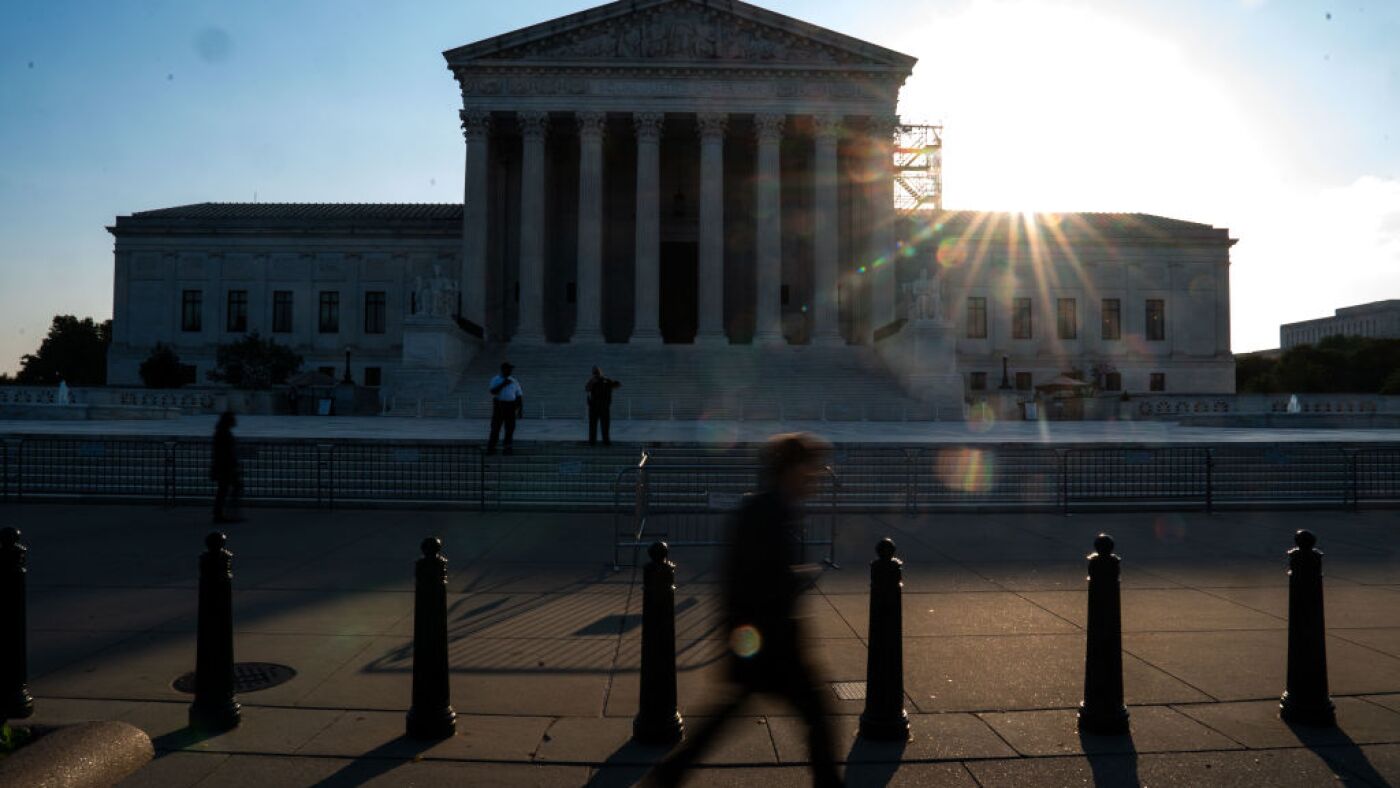
The U.S. Supreme Court allowed the EPA’s emission rules to continue while litigation continues in the lower courts.
Kent Nishimura/Getty Images
hide caption
toggle caption
Kent Nishimura/Getty Images
The U.S. Supreme Court on Wednesday refused to block a set of Biden administration regulations aimed at reducing greenhouse gas emissions from power plants while the rule was being challenged in lower courts.
The court’s order is a boost for the Biden administration’s efforts to tackle climate change. A coalition of Republican-run states and businesses had challenged the rule, citing the financial cost of compliance. Wednesday’s order comes weeks after the court refused to block new anti-pollution rules that impose tougher standards on mercury emissions from coal-fired plants and that regulate methane emissions from crude-oil and natural gas facilities.
Unlike the court’s refusal to intervene in those anti-pollution rules, Wednesday’s decision was not unanimous. Justice Clarence Thomas dissented from the order, saying that he would have paused the regulations while the case played out. Justice Brett Kavanaugh, joined by Justice Neil Gorsuch, wrote separately, saying that while the plaintiffs “are unlikely to suffer irreparable harm before the Court of Appeals for the D. C. Circuit decides the merits” they believe that challengers did show a strong likelihood of success in some of their challenges to the rule. Kavanaugh and Gorsuch indicated that they may be sympathetic to the case were it to be brought after the D.C. Circuit’s ruling.
These recent decisions not to intervene break from the Court’s previous handling of EPA litigation. Last summer, the court temporarily blocked the EPA’s “Good Neighbor Plan” in a 5-4 vote, ruling that the emissions-reductions standards set by the plan were likely to cause “irreparable harm” to almost half the states unless the court halted the rule pending further review by the U.S. Court of Appeals for the District of Columbia.
